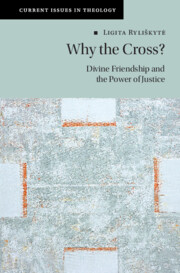Book contents
- Why the Cross?
- Current Issues in Theology
- Why the Cross?
- Copyright page
- Contents
- Preface
- Acknowledgments
- Introduction
- 1 The Exigencies of Secular Culture
- 2 “But We Preach Christ Crucified”
- 3 Augustine’s “Justice over Power”
- 4 “Justice over Power” in Light of Augustine’s De Ciuitate Dei
- 5 The Justice of the Cross in St. Thomas
- 6 St. Thomas on Christ’s Satisfaction
- 7 Lonergan’s Transposition
- 8 The Law of the Cross
- 9 Historically Minded Systematics
- 10 Cur Deus Cruciatus?
- Conclusion
- Works Cited
- Index
4 - “Justice over Power” in Light of Augustine’s De Ciuitate Dei
Published online by Cambridge University Press: 15 January 2023
- Why the Cross?
- Current Issues in Theology
- Why the Cross?
- Copyright page
- Contents
- Preface
- Acknowledgments
- Introduction
- 1 The Exigencies of Secular Culture
- 2 “But We Preach Christ Crucified”
- 3 Augustine’s “Justice over Power”
- 4 “Justice over Power” in Light of Augustine’s De Ciuitate Dei
- 5 The Justice of the Cross in St. Thomas
- 6 St. Thomas on Christ’s Satisfaction
- 7 Lonergan’s Transposition
- 8 The Law of the Cross
- 9 Historically Minded Systematics
- 10 Cur Deus Cruciatus?
- Conclusion
- Works Cited
- Index
Summary
Two loves create the two cities … All of us must therefore ask ourselves what we love, and we shall discover to which city we belong.
St. Augustine1- Type
- Chapter
- Information
- Why the Cross?Divine Friendship and the Power of Justice, pp. 138 - 170Publisher: Cambridge University PressPrint publication year: 2023



